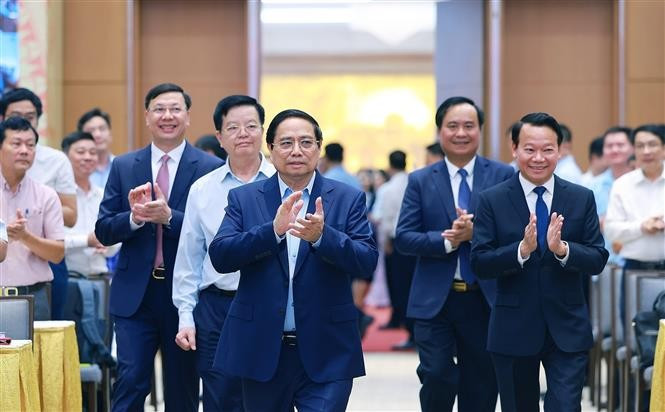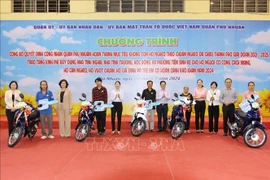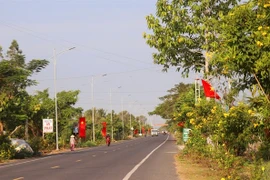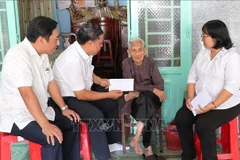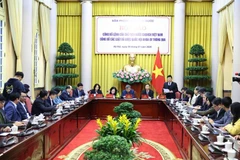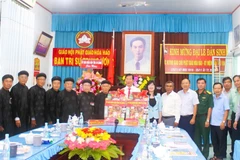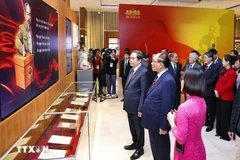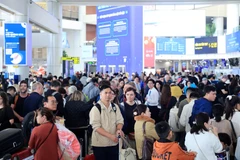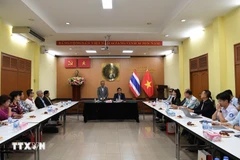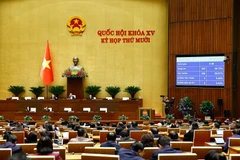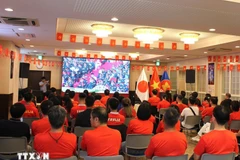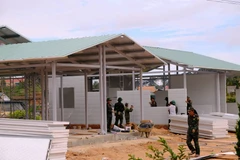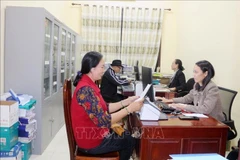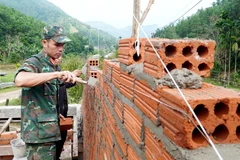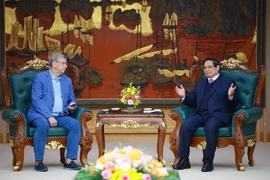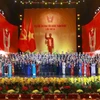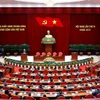Hanoi (VNA) – Prime Minister Pham Minh Chinh presided over a national online conference on June 22 to review the national target programmes on building new-style rural areas and sustainable poverty reduction. The conference also looked into “the whole nation joins hands to build new-style rural areas” and “for the poor - leaving no one behind” movements in 2021-2025. In his remarks, the Government leader, who is also Head of the Steering Committee for National Target Programmes and Chairman of the Central Emulation - Commendation Council, held that agriculture, farmers, and rural areas are the foundation and pillars of national socio-economic development.
Farmers play the central role, while agriculture is motivation and rural areas are the foundation, importantly contributing to maintaining macroeconomic stability, controlling inflation, ensuring food security, and serving as a cradle for the creativity, preservation, and transmission of the cultural heritage of wet rice civilisation of the country.
The conference aimed to outline guiding viewpoints and new policy directions for implementing the national target programmes in the coming years, in line with the upcoming two-tier local administration model, he said.
According to the PM, the Government has issued decrees specifying management mechanisms and implementation frameworks for the above-mentioned national target programmes. A system of steering committees has been set up at all levels to oversee and coordinate their execution.
Besides the national target programmes, the two movements have mobilised the involvement of the entire political system and encouraged active participation from the public, the business community, and organisations both at home and abroad, in order to successfully achieve the goals set out by the programmes.
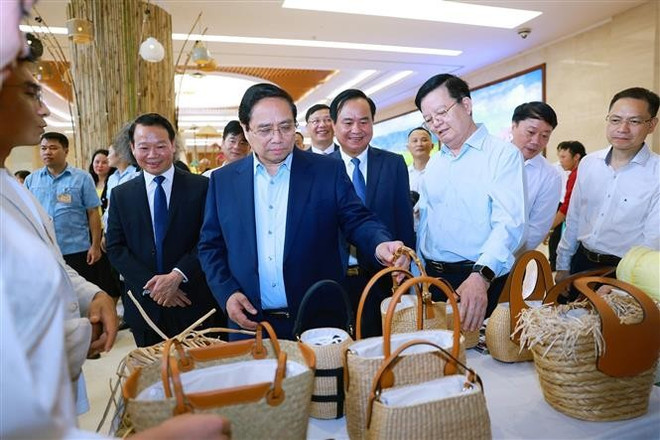
Prime Minister Pham Minh Chinh visits a booth displaying OCOP products. (Photo: VNA)
Accordingly, the programme on sustainable poverty reduction has achieved its annual targets for reducing the poverty rate as assigned by the National Assembly and the Government. It has fulfilled five specific objectives and five five-year goals, and met nine out of 12 indicators related to addressing basic social service shortages. Meanwhile, the programme on building new-style rural areas has seen 79% of communes meeting new rural standards, 51% of district-level localities recognised as meeting or completing the programme’s goals, and 12 provinces and cities officially acknowledged by the PM for having fulfilled the programme’s objectives.
The emulation movements have been widely launched across localities, reaching households, individuals, and the business community. They have inspired numerous innovative and effective practices, with many outstanding examples recognised and commended for their positive contributions.
However, many areas still have high poverty rates, and significant development gaps remain between regions, the PM said, noting that several poor districts have yet to see any commune meet new rural standards, and in some localities, the quality of achieved criteria has not been adequately maintained.
He requested the conference to focus on assessing the results achieved in comparison with the set goals; clearly identify the targets that have been met, exceeded, or missed; analyse specific limitations, challenges, and bottlenecks; pinpoint their causes and draw lessons learned from the implementation of the two national target programmes and related emulation movements during the 2021–2025 period.
He also called for the sharing of effective models, innovative practices, and exemplary initiatives, as well as proposals for the implementation of the programmes for the 2026–2035 period./.
